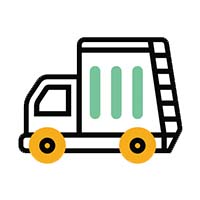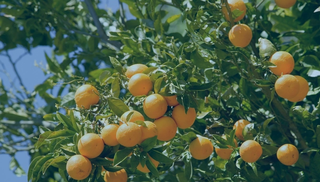
Section 3
Supporting Organic Waste Processing Infrastructure
This page contains a summarized version of this toolkit section. Detailed information about model policy components and federal law, state examples, and model legislation is available in the PDF linked above.
This section introduces a policy that can help states support and develop composting infrastructure to ensure there is sufficient capacity to recycle food scraps. This section includes:
Model State Policies
Permitting and Zoning for Composting and Anaerobic Digestion Facilities
One primary challenge for composting and AD facilities is zoning and permitting—finding sites that are zoned to allow for composting (especially if the feedstock includes food scraps) and then securing necessary permits to collect and recycle organics on-site. Composting facilities typically need zoning approval from the local government and often need a solid waste facility permit or a source separated organics composting permit to accept food waste, both of which can pose barriers. As states encourage more food scraps recycling or pass laws to prohibit landfilling food waste, there are crucial steps they can take to support composting and AD infrastructure through permitting and zoning processes. These best practices include:
- Creating separate regulatory pathways for food scraps composting or AD
- Implementing a tiered system for permitting and operational requirements
- Exempting small-scale and on-site facilities from permitting requirements
- Facilitating favorable local zoning
Recycling Food Scraps into Animal Feed
For centuries, using food scraps as animal feed has been common worldwide.256 This practice has several environmental and economic benefits. Environmentally, diverting food scraps to animal feed is an extremely efficient method of recycling food waste and reducing methane emissions, so much so that it is the third rung on the EPA’s food recovery hierarchy. Today, federal regulations function as a regulatory floor, laying out minimum animal feed standards necessary to protect human and animal health. Legislators should review their laws and regulations, remove overly restrictive requirements, and provide support and education to create a regime that encourages innovative models that safely recycle food scraps into animal feed, while still protecting animal and human health. Specifically, states should:
- Eliminate any laws that ban the feeding of food scraps to animals
- Encourage state agencies to re-evaluate existing authority to support the development of facilities recycling food scraps into animal feed
- Eliminate requirements for heat-treating non-animal-derived scraps
- Replace the pejorative name “garbage” with a more neutral term such as “food scraps”
- Provide guidance and education on laws and regulations
- Encourage partnerships with local farms
- Provide funding to support recycling food scraps into animal feed
